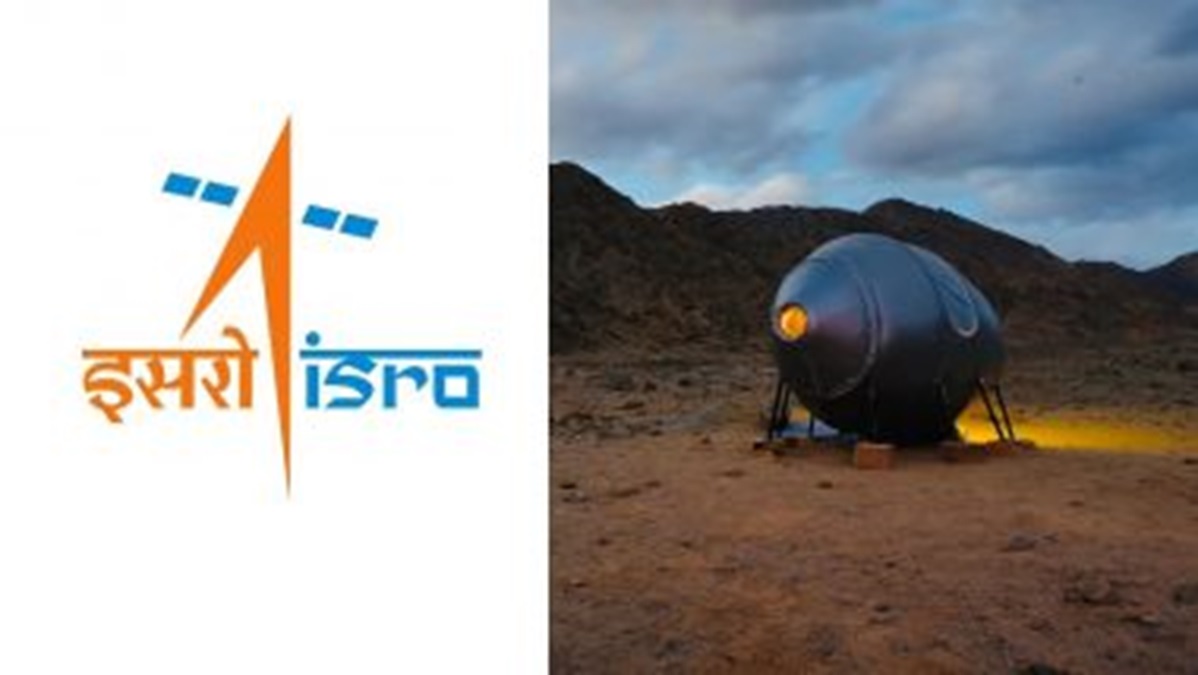

NEW DELHI:
The Indian Space Research Organization (ISRO) on Friday announced the launch of its first analog space mission, to study the challenges of extraterrestrial conditions that will help in future space missions.
The mission, which includes a compact, inflatable habitat named Hab-1 will simulate life in an interplanetary habitat. It is being held in Leh, in Ladakh.
Even as India plans to launch several space missions, the new mission will help understand the challenges that future astronauts may encounter on missions beyond Earth.
“India’s first analog space mission kicks off in Leh!” ISRO said in a post on X.
“This mission will simulate life in an interplanetary habitat to tackle the challenges of a base station beyond Earth,” the space agency added.
Hab-1 is equipped with essentials like a hydroponics farm, kitchen, and sanitation facilities. It provides a self-sustaining environment, offering valuable data as India is planning long-duration space missions to the Moon, Mars, and beyond.
The mission is a collaborative effort by the Human Spaceflight Centre, ISRO, AAKA Space Studio, University of Ladakh, IIT Bombay, and is supported by the Ladakh Autonomous Hill Development Council.
Ladakh was chosen as the place for the mission due to its unique geological characteristics that closely resemble Martian and lunar landscapes.
Its cold, arid conditions and high altitude will provide an ideal environment for testing technologies and strategies necessary for long-duration space missions.
During the mission, the scientists will test new technologies, robotic equipment, vehicles, habitats, and communications. They will also seek to understand power generation, mobility, infrastructure, and storage during the analog mission.
Hab-1 will also study the effects of isolation and confinement on human health and performance.
The findings may help ISRO understand the strengths, limitations, and validity of planned human-robotic exploration operations.
“This analog mission is a significant step towards understanding the complexities of living on other planets,” said Rajnagar Divisional Forest Officer Sudarshan Gopinath.
“The insights gained will be crucial for the success of future space missions,” he added.
The country’s Space Vision 2047 includes setting up an Indian Space Station – – Bharatiya Antariksha Station (BAS) — by 2035 and landing an Indian on the Moon by 2040.
more recommended stories
CANADA:Participating in the Outreach Session of.
AHMEDABAD:Just days after the devastating crash.
NEW DELHI:Amidst the rapidly intensifying conflict.
NEW DELHI:An Air India Boeing 787-8.
AHMEDABAD:Air India flight heading to London.
NEW DELHI:In a significant push towards.
NEW DELHI:The Delhi High Court denied.
HYDERABAD:The Bharat Rashtra Samithi (BRS) finds.
MUMBAI:The RBI has revised its inflation.
WASHINGTON:In a move reigniting the debate.